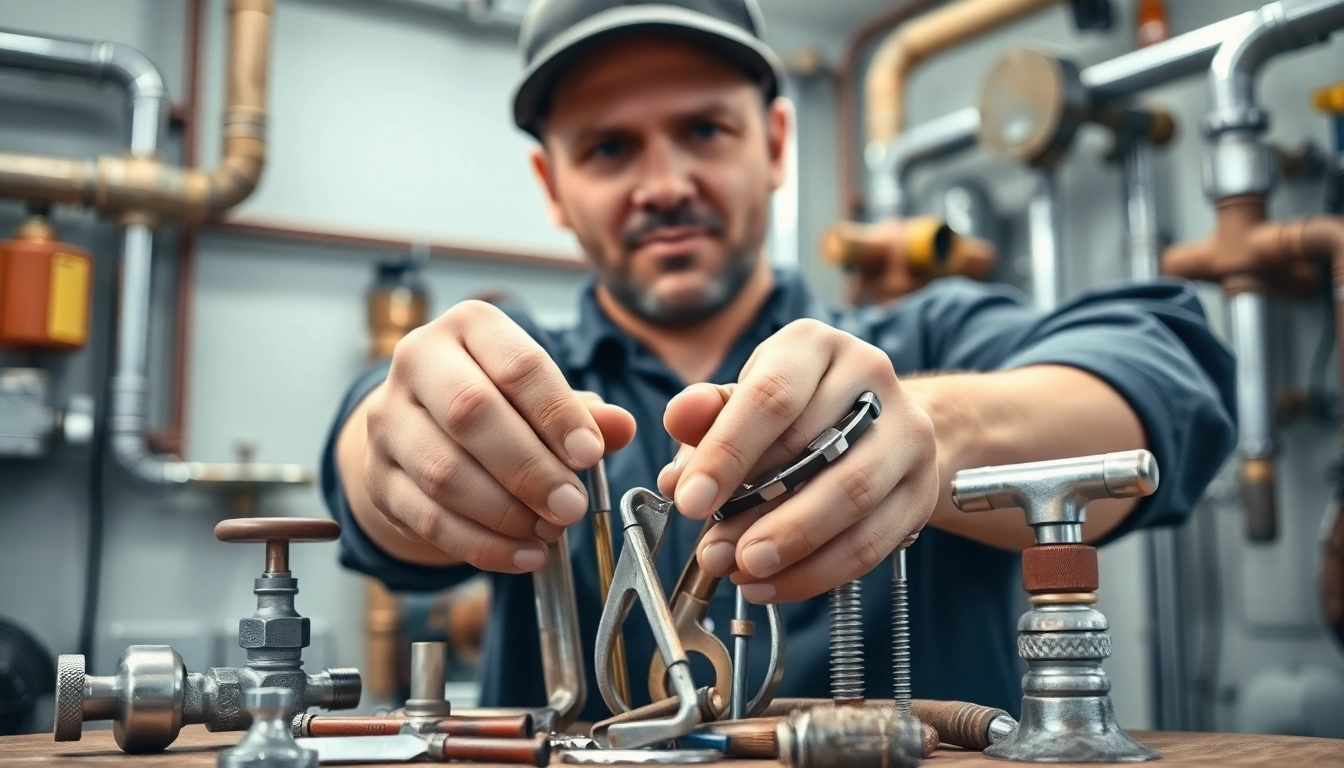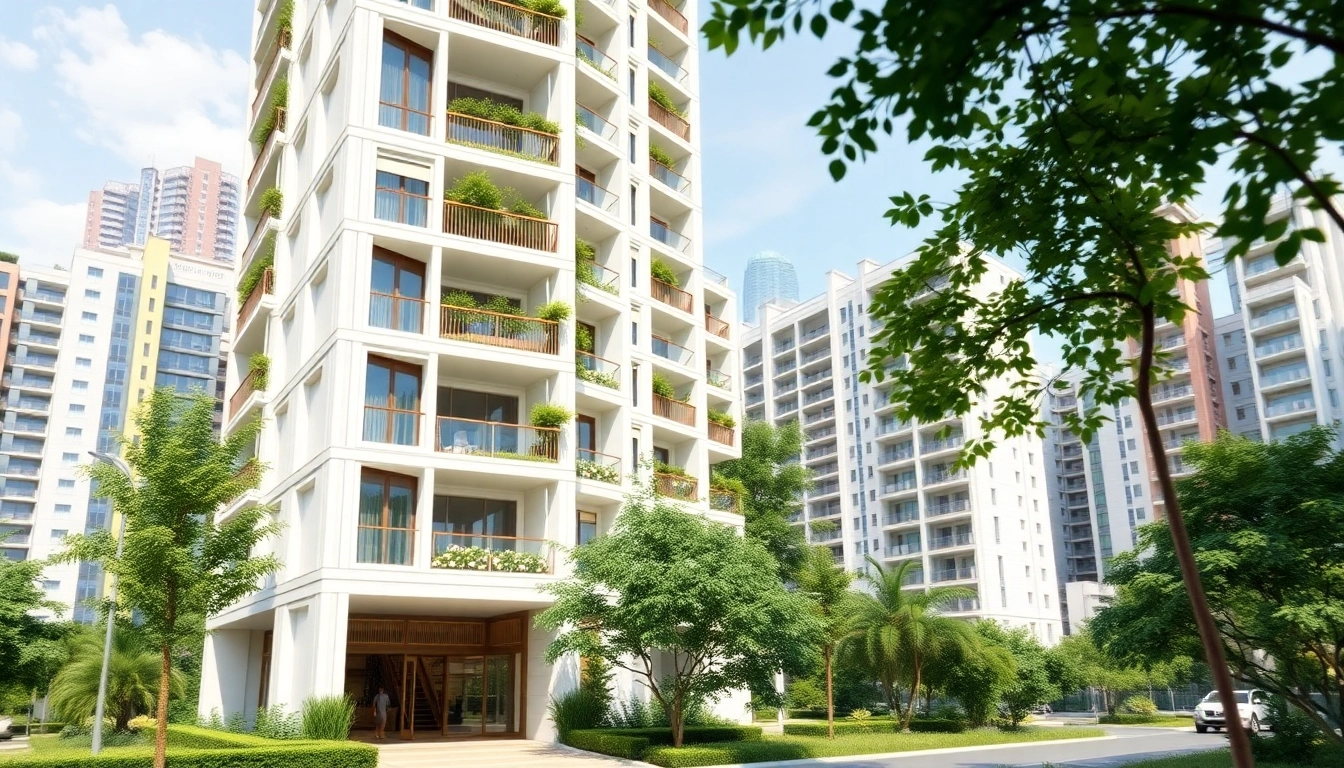Understanding Plumbing Basics
Plumbing is a critical aspect of modern living, encompassing the intricate systems that manage the distribution of water and the disposal of waste. It is vital for both residential and commercial spaces, ensuring comfort, hygiene, and convenience. As you delve into the subject, you’ll discover how various elements work in harmony to maintain quality water supply and efficient drainage systems. Understanding basic plumbing concepts is essential for every homeowner, and engaging with resources on plumbing can further enhance your knowledge.
What is Plumbing and Its Importance
Plumbing refers to the network of pipes, fixtures, valves, and fittings that facilitate the transport of water, gas, and waste products in buildings. Its importance cannot be overstated; plumbing systems ensure access to clean water, essential for drinking, cooking, bathing, and sanitation. Furthermore, effective plumbing can prevent structural damage due to leaks and helps maintain optimal health standards by managing waste disposal.
Key Components of Plumbing Systems
Understanding the major components of plumbing systems is crucial for diagnosing issues and performing maintenance. The primary elements include:
- Pipes: The conduits through which water flows, typically made of materials like PVC, copper, or galvanized steel.
- Valves: Devices that regulate water flow, including shut-off valves and pressure-reducing valves.
- Fixtures: These include sinks, faucets, toilets, and bathtubs, which facilitate daily activities.
- Drainage systems: Responsible for removing wastewater, utilizing gravity to ensure proper flow to sewer lines.
The Role of Plumbing in Hygiene
Plumbing is intricately linked to public health. Access to clean water and efficient waste disposal systems is paramount to preventing the spread of diseases. Proper plumbing systems reduce the risk of waterborne illnesses, promote sanitary conditions, and ensure that communities can thrive healthy and safe.
Common Plumbing Problems and Solutions
Homeowners often face various plumbing issues that can disrupt daily life. Being familiar with common problems and their solutions can save time, money, and stress.
Identifying Leaks and Their Causes
Leaks can occur anywhere in your plumbing system, often resulting in water damage and increased utility bills. Common causes of leaks include faulty joints, corrosion, or damaged pipes. To identify leaks:
- Check your water meter: If the meter is still running while no water is being used, this could indicate a leak.
- Inspect walls and ceilings: Look for discoloration, mold, or moisture accumulation.
- Monitor your water bill: A significant increase in usage without corresponding changes in habits may signal a leak.
If you find a leak, consult with a plumbing professional for repair options.
Fixing Clogged Drains: Techniques and Tools
Clogged drains are a common annoyance that can lead to more severe plumbing issues if not addressed promptly. Common techniques to unclog drains include:
- Plunger: A fundamental tool for clearing minor clogs in sinks and toilets.
- Drain snake: A flexible auger that can reach and break apart tough clogs deep within the pipes.
- Baking soda and vinegar: A natural solution that breaks down buildup when combined and flushed with hot water.
If these methods are ineffective, you may need to contact a professional plumber for more advanced solutions.
Understanding Water Pressure Issues
Water pressure can fluctuate due to various reasons, affecting everyday conveniences like showering and washing dishes. Here’s how to troubleshoot water pressure issues:
- Check Multiple Fixtures: If only one fixture is affected, the issue may be localized. If pressure is low throughout the home, this indicates a more systemic problem.
- Inspect for Leaks: As leaks can reduce pressure, addressing leaks will restore optimal flow.
- Pressure regulator: Ensure that the pressure regulator is functioning correctly. Adjustments may be necessary to maintain adequate pressure levels.
Maintaining Your Plumbing System
Regular maintenance of plumbing systems can prevent minor issues from escalating into costly repairs. Knowing how to maintain your plumbing plays a crucial role in extending its lifespan.
Regular Maintenance Tips for Homeowners
Here are essential maintenance tips to keep your plumbing in top condition:
- Inspect plumbing regularly: Regularly check for leaks and signs of wear.
- Flush drains: Use vinegar and baking soda monthly to keep drains clear of debris.
- Watch what goes down the drain: Avoid disposing of grease, food scraps, and non-biodegradable items in sinks.
Seasonal Plumbing Checklists
Seasonal checks can catch problems before they worsen. Here’s a handy checklist:
- Winter: Insulate pipes to prevent freezing.
- Spring: Inspect the exterior for leaks or damage, and clean gutters and downspouts.
- Summer: Monitor the irrigation system for leaks and maintain water pressure.
- Fall: Flush the water heater and check all outdoor faucets before freezing temperatures.
Signs That Indicate Professional Inspection
While many plumbing issues can be addressed independently, certain signs show that professional assistance is needed:
- Persistent low water pressure.
- Frequent backups or clogs.
- Water discoloration or foul odor.
Quickly addressing these issues can save significant expenses down the line.
Modern Plumbing Technologies
As technology evolves, so does the plumbing industry. Innovative techniques and products consistently emerge, enhancing efficiency and sustainability in plumbing systems.
Innovative Plumbing Fixtures for Energy Efficiency
Modern plumbing fixtures are designed to conserve water while maintaining performance. Some examples include:
- Low-flow faucets and showerheads: These fixtures significantly reduce water usage without sacrificing water pressure.
- Dual-flush toilets: These toilets offer the option of using less water for liquid waste, promoting efficient water usage.
- Smart toilets: Equipped with features such as self-cleaning and automatic flushing, these devices enhance hygiene and convenience.
Smart Plumbing Solutions for Homeowners
Smart technology can help homeowners monitor plumbing in real-time. Consider the following innovations:
- Leak detectors: Devices that detect moisture and alert homeowners to potential leaks before they escalate.
- Smart water meters: These allow you to monitor water usage, helping in identifying irregularities or leaks.
- Automated irrigation systems: They optimize water usage in gardens and lawns, adapting to weather conditions to conserve water.
The Future of Plumbing Technology
The plumbing industry continues to embrace emerging technologies, such as 3D printing and advanced materials that minimize waste and energy consumption. Blockchain technology may also play a role in managing plumbing infrastructure more efficiently, ensuring timely maintenance and transparency of services. Continuous improvements in plumbing technologies highlight the importance of innovation, driving towards systems that are not only functional but also environmentally sustainable.
DIY Plumbing Repairs: What You Can Handle
Understanding which plumbing tasks you can handle yourself can save money and time. However, it is essential to recognize when a situation requires professional intervention.
Essential Tools for DIY Plumbing
Equipping yourself with essential tools makes DIY repair projects manageable:
- Plunger: Critical for clearing clogs in toilets and sinks.
- Adjustable wrench: Useful for tightening and loosening plumbing connections.
- Pipe wrench: Ideal for gripping and turning pipes.
- Tape measure: Ensures accurate measurements for pipe replacements and fittings.
- Flashlight: Helps see in dark spaces or tight spots.
Simple Repairs You Can Do Yourself
There are plenty of plumbing repairs that homeowners can undertake, such as:
- Replacing faucet washers or gaskets to fix leaking faucets.
- Clearing minor clogs with a plunger or drain snake.
- Unclogging toilets by removing the tank lid and adjusting the flapper chain.
These repairs enhance your plumbing system’s functionality and empower you as a homeowner.
When to Call a Professional Plumber
Understanding your limits is crucial. Consider calling a professional for:
- Any work involving the main water line.
- Complex repairs requiring specialized tools or skills.
- In-depth inspections for suspected leaks within walls or under floors.
Professional plumbers have the expertise to handle complicated challenges, ensuring the integrity of your plumbing system.


